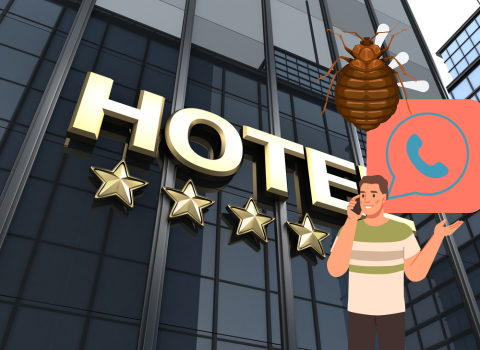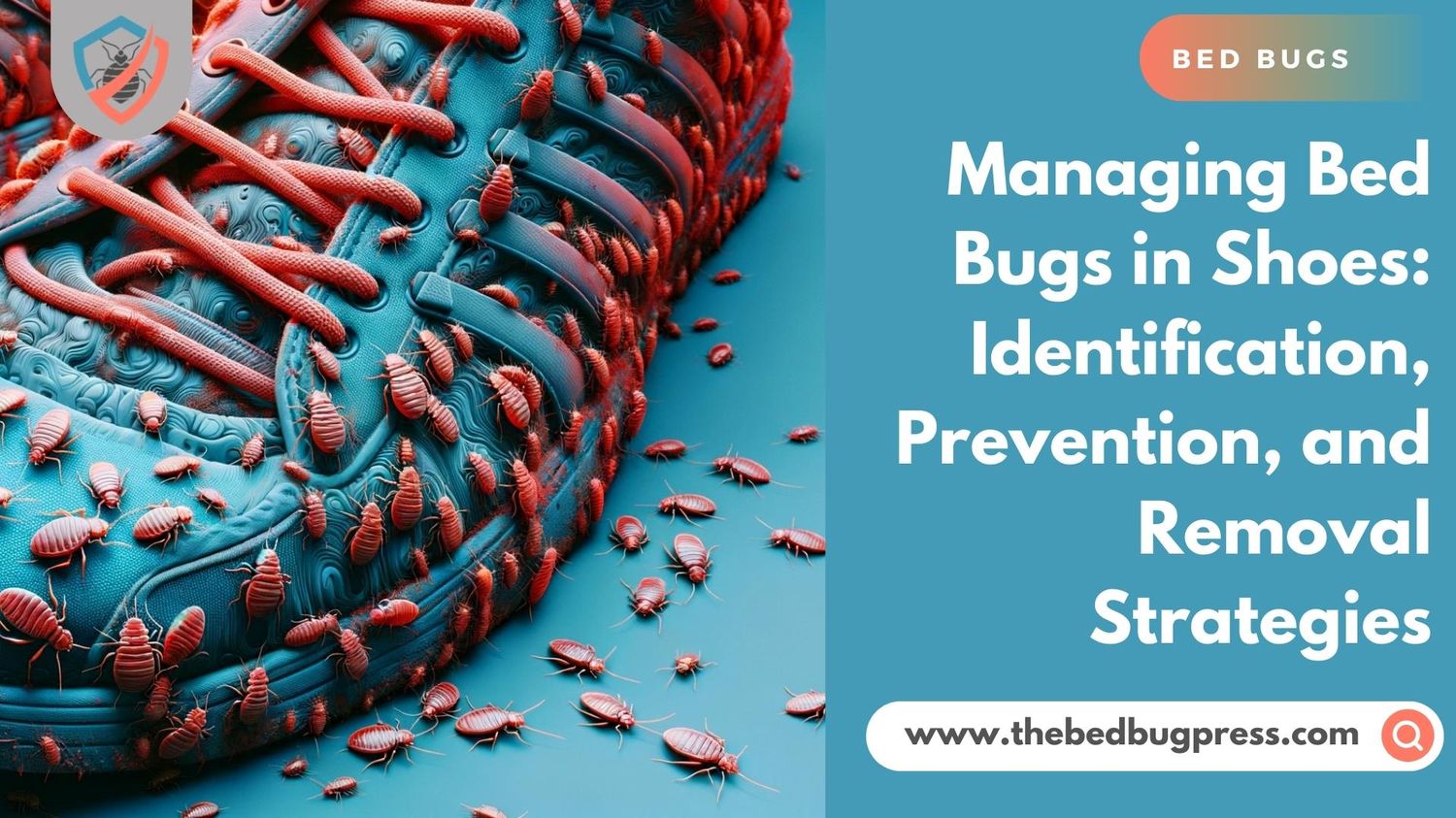Bed bugs are a persistent nuisance that can quickly turn a pleasant hotel stay into a nightmare. Discovering these unwelcome critters in your hotel room is an unsettling experience, and it raises an important question: Are hotels obligated to report bed bug infestations?
Understanding the responsibilities of hotels when it comes to bed bug disclosures is crucial for both guests seeking peace of mind and hotel owners striving to maintain their reputation. In this article, we will delve into the topic and shed light on whether hotels have a legal or ethical duty to report bed bug incidents.

State Laws Protecting Hotel Guests from Bed Bugs
In response to the growing concern over bed bug infestations in hotels, many states have implemented laws and regulations to protect hotel guests from these unwelcome pests.
These laws aim to ensure that hotels maintain a safe and pest-free environment for their guests, as well as establish guidelines for reporting, remediation, and compensation in case of bed bug incidents.
The specific laws and regulations governing bed bugs can vary from state to state, so both hotel owners and guests need to familiarize themselves with the laws in their respective jurisdictions.
Some states require hotels to implement preventive measures, such as regular inspections and professional pest control treatments, to minimize the risk of bed bug infestations. These measures often include detailed protocols for housekeeping, laundry, and maintenance practices to prevent the spread of bed bugs between hotel rooms.
Additionally, many states have specific requirements regarding the reporting of bed bug incidents. Hotels may be legally obligated to promptly report any known or suspected infestations to the appropriate authorities, such as the local health department.
Some states even require hotels to provide written notice to guests about the existence of bed bugs or any recent history of infestations. This information empowers guests to make informed decisions about their stay and take necessary precautions.
Moreover, state laws often outline the responsibilities of hotel owners when it comes to remediation and compensation for bed bug complaints. In the event of a bed bug infestation, hotels may be required to take immediate action to eliminate the pests and prevent their reoccurrence. This typically involves hiring licensed pest control professionals to conduct thorough inspections, treatments, and follow-up measures.
In some cases, hotels may also be responsible for compensating guests for losses or damages resulting from bed bug incidents, such as medical expenses, property replacement, or even reimbursement for alternative accommodations.
It is important to note that while state laws provide a framework for protecting hotel guests from bed bugs, enforcement, and compliance can vary. It is advisable for guests to familiarize themselves with the specific laws in their state and to document any incidents or issues encountered during their hotel stay.
In case of a bed bug infestation, guests should report the problem to hotel management immediately, follow any necessary reporting procedures outlined by the state law, and consider seeking legal advice if their rights are not adequately addressed.
Are Hotels Liable for Bed Bugs?
The question of liability often arises when it comes to bed bug infestations in hotels. While specific laws and regulations may vary across jurisdictions, hotels can be held liable for bed bugs under certain circumstances.
Hotels have a duty to provide a safe and hygienic environment for their guests, and if they fail to take reasonable measures to prevent or address bed bug infestations, they may be held responsible for any resulting damage. This can include compensation for medical expenses, property damage, or even reimbursement for alternative accommodations.
However, proving hotel liability for bed bugs can be complex, and affected guests should gather evidence, document the incident, and seek legal advice to determine the best course of action.
Informing Hotel Management About Bed Bugs: A Guide
Discovering bed bugs in your hotel room can be distressing, but it’s crucial to promptly inform hotel management to address the issue effectively. Here is a step-by-step guide on how to inform hotel management about bed bugs:
Stay calm and gather evidence:
Take photos or videos of the bed bugs and any signs of infestation, such as bite marks, bloodstains, or live bugs. This visual evidence will support your claim and help the hotel understand the severity of the situation.
Contact the front desk:
Visit the front desk or call the hotel’s reception to report the bed bug infestation. Remain polite and provide clear details about the situation, including the room number, the number of bugs found, and any related evidence you have collected.
Request immediate action:
Stress the importance and urgency of the situation, firmly requesting that the hotel management take immediate and decisive action to address the bed bug infestation. Ask for a different room that is not adjacent to the infested one, or consider requesting a refund or relocation to another hotel if the issue cannot be resolved promptly.
Document the conversation:
Take note of the date, time, and name of the hotel staff member you spoke to. Keep a record of what was discussed, any promises made, and the actions that will be taken to resolve the infestation.
Follow up in writing:
After speaking with hotel staff, send a written complaint to the hotel management. Describe the incident, provide details of the infestation, and attach the evidence you collected. Clearly state your expectations for resolution, such as a refund, compensation for any damage or medical expenses, or assurances that necessary measures will be taken to prevent future infestations.
Maintain your belongings:
If you change rooms within the hotel, carefully pack your belongings in sealed plastic bags to prevent bed bugs from spreading. Keep any contaminated items separate from unaffected ones.
Report to relevant authorities:
If the hotel fails to address the issue satisfactorily or if you believe there is a public health risk, consider reporting the infestation to local health departments or regulatory agencies responsible for lodging establishments.
Try to remain calm, assertive, and persistent when communicating with hotel management. By promptly reporting the bed bug infestation and providing clear evidence, you increase the chances of the issue being resolved effectively and protect other guests from encountering similar problems.

Steps to Report a Hotel Infested with Bed Bugs
If you find bed bugs in your hotel room, there are things that you must do to create a complete report about it.
Document the evidence:
Take clear photographs or videos of the bed bugs and any related signs, such as bloodstains or discarded exoskeletons. This evidence will be crucial when reporting the infestation.
Notify hotel management immediately:
Report the bed bug infestation in your room to the front desk or hotel management. Be calm and provide them with a detailed account of the issue. Request to speak with a manager if necessary.
Request a room change:
Ask to be moved to a different room that is not adjacent to the infested room. Ensure that the new room is thoroughly inspected for bed bugs before settling in.
Preserve evidence:
If you decide to change rooms, carefully pack your belongings in sealed plastic bags to prevent the spreading of bed bugs. Keep any contaminated items separate from unaffected belongings.
Document conversations and actions:
Keep a record of all interactions with hotel staff, including names, dates, and details discussed. This information may be valuable if further action is required.
Contact relevant authorities:
If the hotel fails to address the issue or if you believe there is an immediate risk to public health, consider reporting the infestation to local health departments or the appropriate regulatory agencies.
Write a formal complaint:
After your stay, draft a formal written complaint to the hotel management, describing the situation, your experience, and the financial or physical damages you incurred. Be clear and concise in explaining your expectations for compensation or resolution.
Share your experience:
Utilize online review platforms or travel websites to inform others about your experience with the infested hotel. This can help future travelers make informed decisions and put pressure on the hotel to address the issue.
Keep in mind that each situation may vary, and it is important to consult with legal professionals or consumer protection agencies to understand your rights and explore potential remedies if necessary.






